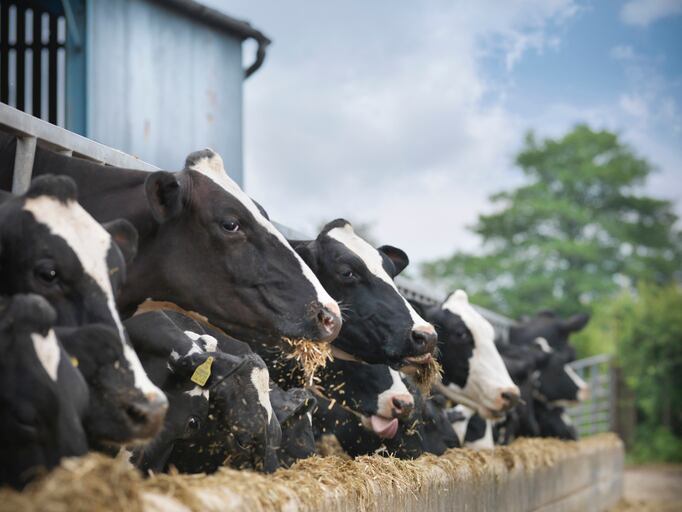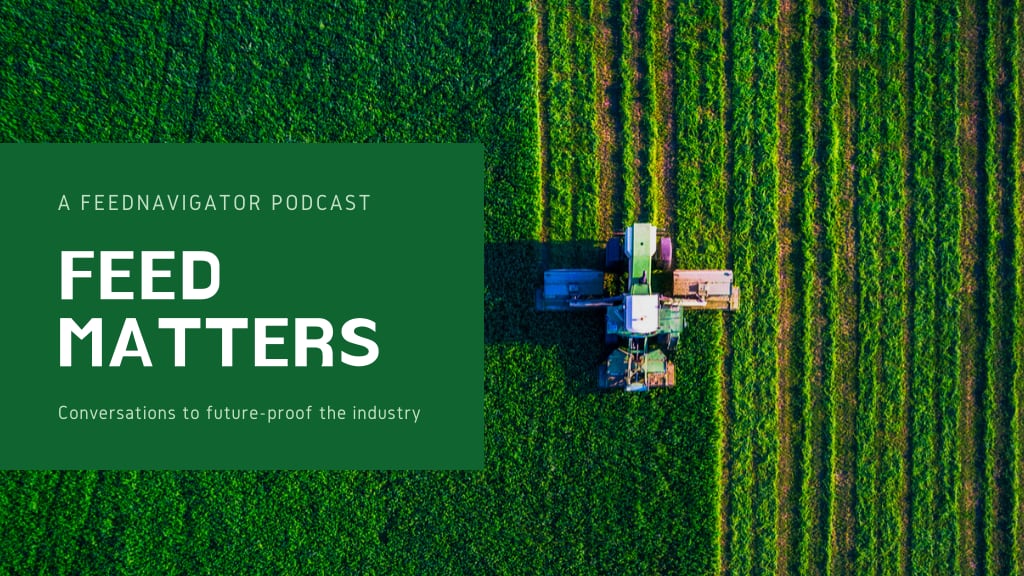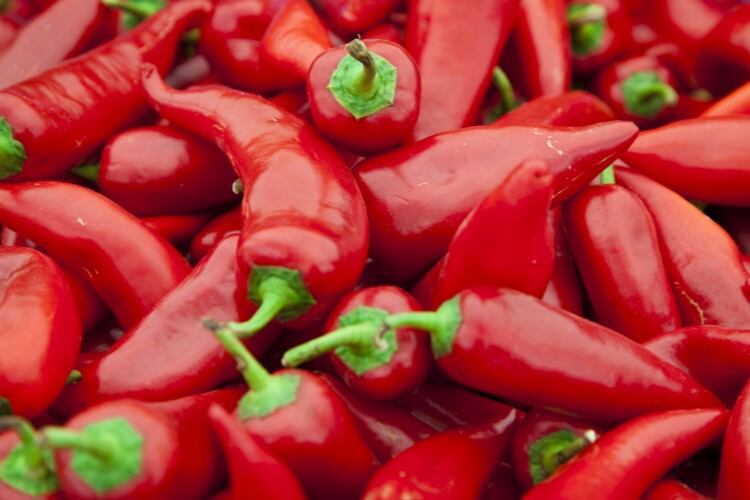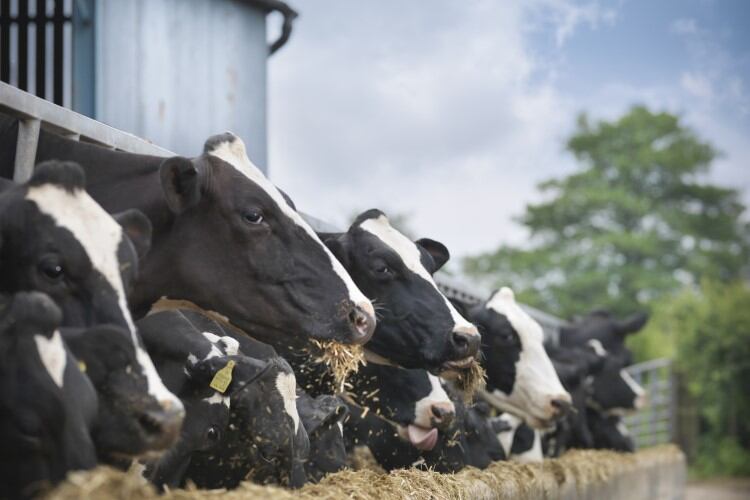With the goal of achieving net zero status across all its operations and value chain by 2040, M&S is collaborating with all 40 dairy farmers in its milk pool for this initiative in the UK market.
This effort is projected to eliminate approximately 11,000 tons of greenhouse gas (GHG) emissions annually. By adjusting the feed of the herds within its supply chain, M&S anticipates a reduction of 8.4% in the carbon footprint of its fresh milk.
According to M&S Food's 2023 sustainability report, agriculture accounts for 72% of the retailer group's emissions. The report emphasizes the need for comprehensive changes in farming practices, including choices regarding breeds and varieties, feed and fertilizer management, grassland, and soil carbon management. It also highlights the importance of addressing emissions reduction alongside considerations such as animal welfare standards, water management, and biodiversity conservation.
Methane blockers
There is growing pressure on the UK agriculture sector to get its house in order regarding environmental impact, particularly in light of the UK government's commitment at COP28 to reduce methane emissions. Defra acknowledges the potential of methane-suppressing feed additives in mitigating livestock emissions and achieving the country's 2050 net zero target.
The cost of methane blockers has often been cited as an obstacle to their use. But UK farmers indicated in a Defra survey their willingness to adopt such supplements if financial incentives were provided.
Dennis Rijnders, regional commercial director, Bovaer, at dsm-firmenich, told us the company was working with M&S in this collective effort to combat climate change.
"This initiative not only marks a milestone in our journey towards a greener future but also sets a commendable example for the entire industry to follow in measuring and reducing Scope 3 emissions."
Isabelle Botticelli, recently announced as interim CEO of Mootral, also commented on the M&S financing effort. She expressed her satisfaction at seeing "the value chain taking responsibility" and funding solutions to help farmers meet sustainability goals.
Bovaer received market approval in the UK in December 2023. The feed additive offers the potential for average reductions of up to 30% in methane emissions from dairy cows. It can be integrated into dairy minerals or concentrate blends, facilitating its incorporation into Total Mixed Rations (TMRs) and partial TMRs. It would be given to the dairy cows in the M&S pool as part of their in-barn rations.
The methane blocker, as it stands, is more effective in confined systems. But, in February last year, dsm-firmenich reported that a slow-release pasture-based version of the additive was in the pipeline. In an update today, the company told us that work is ongoing to find a solution for extensive pasture markets but, at this time, it cannot provide a precise date as to when such innovation would reach the commercial stage.
A welfare report from M&S in 2023 outlined how 83% of dairy cows in its fresh milk supply chain in 2022 were provided with pasture access for more than 120 days a year and over six hours per day.
Bolus technology
A PhD student at the UK's Harper Adams University, Charlotte Roxborough, is investigating the effect of essential oils when supplied in the feed or via a slow release bolus in the cow’s rumen, using GreenFeed units to do so.
“Most additives to reduce methane production in cattle have to be included in the diet or fed as supplements.
“This is great when the cows are housed, but there is a large number of cattle that are grazed and do not receive any supplementation. Providing an effective product in a slow release bolus will therefore allow methane production to be reduced in grazing animals as well as when housed," she commented.
Net zero emissions goal
M&S is actively engaged in collaborations within the broader UK food and agricultural sector, partnering with organizations like WWF, WRAP, BRC, and the NFU. In December, the company launched its Farm of the Future program, aimed at supporting livestock farmers in rapidly decarbonizing their operations as they move towards net zero emissions. The program involves collaborations with Cranswick, Skea Eggs, Dunbia, Scotbeef, Linden Foods, Müller, and 2 Sisters Food Group, covering various sectors including beef, lamb, dairy, chicken, pork, and eggs.
Additionally, last month, Tesco, in partnership with UK bank, Natwest, introduced a new discounted climate and sustainable finance scheme for 1,500 of its farmers. This scheme offers preferential rates on finance to assist farmers in transitioning to sustainable farming practices.





